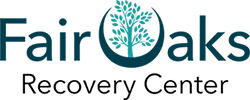Unfortunately, for many people, dealing with family members is troublesome even during the best of times, much less when there are serious issues to work out. While the thought of going through addiction counseling as a family might make you cringe, it’s often one of the best tools for effective recovery—and a healing opportunity for all of you.
The Family Connection
According to the Pew Research Center, nearly 50 percent of Americans have a family member or friend who struggles with addiction. Approximately one in four children grow up in an environment where one or more family members have substance use disorder (SUD) or alcohol use disorder (AUD).
AUD and SUD are integrated into family dynamics in multiple ways.
In 2022, Rutgers University researchers reported on the heritable factors of addiction. Their findings concluded that:
- “The best-known indicator of genetic risk is having a parent with a substance use disorder.”
- “Resident children of parents who have substance use disorders and related behavioral challenges will engage in similar behaviors more than the genetics of the child would predict.”
- Additionally, parents with SUD or AUD “not only pass on their genes but create a riskier environment for the kids.”
- Rutgers research also suggests “alcohol addiction is about 50 percent heritable, while addiction to other drugs is as much as 70 percent heritable.”
Multiple agencies affiliated with the National Institutes of Health (NIH) released new data from a 2023 study that indicates “the combination of genes underlying addiction disorders was also associated with regulation of dopamine signaling.” The research included “genomic data of over 1 million people.”
Aspects of generational trauma play a part in someone’s susceptibility for addition, too. Also referred to as historical trauma, intergenerational trauma, multigenerational trauma, and secondary trauma, the condition refers to when descendants of a person who experienced a terrifying event demonstrate behavioral issues and have complications with emotional and mental health. Noted studies have even documented this phenomena with families of veterans, American Indians, and members of the BIPOC and LGBTQIA2+ communities.
Conversely, some individuals can have other risk factors for addiction that have nothing to do with family dynamics. They might have always had loving support and consideration, but other influences—such as mental health issues, peers, life and work pressures—or particularly addictive drugs—such as cocaine, heroin, opiates, and other substances—created a domino effect of conflict that even the closest relatives can’t prevent.
Family Group Therapy: Reinforcing Support
This multi-level impact is a primary reason why many addiction rehabilitation centers stress the need for family group therapy, whether at the facility or elsewhere. It may actually be an essential component of a client’s continuum of care treatment plan along with some of their individual therapy sessions.
When someone is in the early stages of recovery, family therapy might involve bringing up many uncomfortable issues in order to clear the air and help people make amends. The benefits of doing this in a professionally guided setting is there’s a purposeful awareness to keep conversations from unraveling to the point of no resolution. Honest discussion can be challenging at first, but it’s necessary. There are also ample opportunities for education, communication training, and shared family support and resources, such as Al-Anon and other mutual aid groups.
However, sharing focused counseling sessions with family members is different from traditional family visits during rehab. During a general visit, it’s often important to keep interactions light and informative, as someone beginning their recovery journey has a lot to process—and so do their loved ones. Advancing to more structured family therapy usually happens after a period of a few weeks.
Some aspects of family therapy might occur over a few days or during a weeklong event at a facility, while others could be ongoing. However, the goal is the same: to help all individuals within the unit begin to heal and transform in more positive ways.
Minimize Expectations But Keep Moving Forward
There are many factors present in the family cycle of addiction, and progress takes time. For example, if you or someone you love suffered multiple adverse childhood experiences, a lot of attention is necessary to identify and address these issues. Additionally, if you have a family member who’s used maladaptive behavior to get through life, those fences won’t be mended overnight.
And here’s another hard truth: if you’re in a toxic relationship with a relative, the only possible way to heal may be to end it completely. Rather than hide from this responsibility, take time to make peace with it so you can move forward in life—and remember that acceptance and forgiveness really matter.
Whole-Person Healing at Fair Oaks
The board-certified professionals at our Sacramento drug and alcohol rehab center approach each client with the utmost compassion and whole-person care. If your individualized treatment benefits from healing the family dynamic due to the ravages of addiction, call today to learn how we can help.



